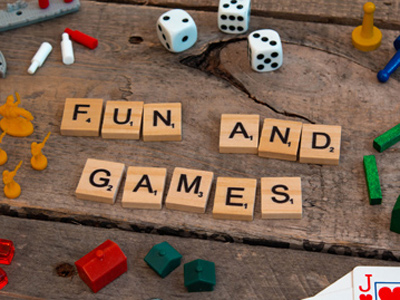

VR - A Spelling Game to Practise Techniques
This exam illustration is slightly different to the others. It is not something you will have to contend with in the Eleven Plus Verbal Reasoning Exam, but it will help you to answer many different types of question found in there.
It’s particularly useful when children are asked to spot patterns in words, so I thought it would make a great introduction to this section.
What It Teaches
Children learn to look for letters which go together. They soon realise that some letters are more sensible to place next to others and they also picture words in their heads; a critical skill for completing entrance tests.
If they are stuck and want to ‘bluff’ their way through they will learn that some letters just don’t work together. It also gives you a good idea what level your child is at when it comes to spelling when not having lists to learn, and of course it’s also good fun and very competitive!
The game will help develop skills which will come in handy when they are faced with questions involving anagrams, or adding letters to a word to make new ones. It also helps with spelling – a skill vital to anyone who wants to pass the Eleven Plus.
How To Play The Game
To play, you will need at least two players or teams, try not to have more than five teams.
You will also need a piece of paper / wipe-clean board and a pen / pencil.
The first player names a letter which gets written in the middle of the paper or board. The next player names a letter which is put to the left or right of the first letter and play passes to the following player. The object of the game is to continue building a word until a word is completed. The loser will be the first person to place a letter which forms a completed word of three or more letters on the paper.
If a player believes that they have been asked to add to an impossible set of letters that doesn’t make sense in English, they can challenge the previous player to say the word they were thinking of.
Let’s look at an example of the game in action:
| Player 1: | T | |
| Player 2: | A T | (two letter words are fine – otherwise it gets very hard!) |
| Player 3: | A T I | |
| Player 1: | R A T I | |
| Player 2: | R A T I O | (Perhaps the player is trying to spell the word ‘ration’; unfortunately they have made a word, ‘ratio’, therefore they have lost the game. The other players get a point each. A new round starts.) |
| Player 3: | W | |
| Player 1: | W E | |
| Player 2: | S W E | |
| Player 3: | S W E E | |
| Player 1: | S W E E R | (The player saw that if they put down ‘p’ or ‘t’ they would create a word and lose the game. Therefore they put down ‘r’ in the hope that it could fool the next player into thinking there is a word with these letters in this order.) |
| Player 2: | [Challenges] |
|
When a player feels that the combination of letters is no longer a legitimate part of a word then they can challenge and ask the previous player to name a word that has the letter string in. If they can name a word then they win that round; if they can’t, the player who challenged wins the point. In this instance we can assume the player couldn’t think of a word with ‘sweer’ in it so player 2 has won the round.
This is not by any means the only game you can play which helps develop your child’s skills. Perhaps you can think of some more of your own devising. Word games, like Scrabble or Upwords, are great ways to help children to practise spelling, anagrams and other skills vital for the Eleven Plus exam.



